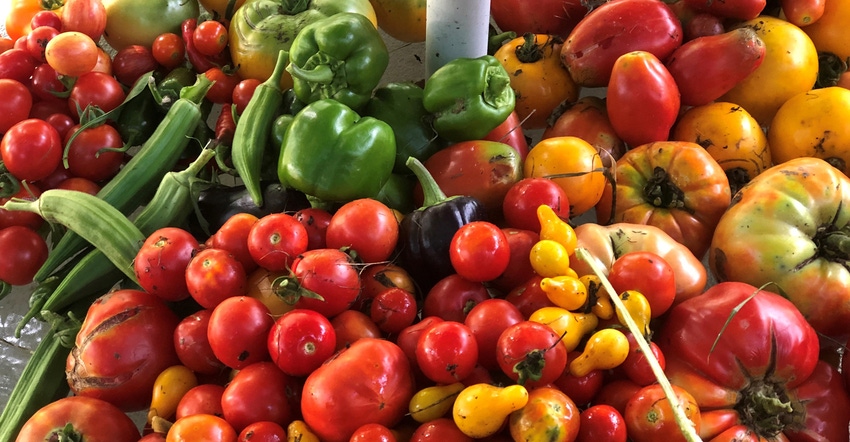January 13, 2022

Taking the road less traveled may be Chuck Mohler’s specialty. The dairy farm boy envisioned his future not raising cows, but growing vegetables. He is one of northern Indiana’s most well-known sweet corn growers and a fan favorite of locals looking for high-quality vegetables.
Chuck and his wife, Tami, started their vegetable production business, Sweet Corn Charlie’s, in 1986 in Millersburg, Ind. They weren’t always a large operation with popularity and profits. In fact, they tell people they started as “beggars” for the first decade after they got Sweet Corn Charlie’s on its feet. But they saw the farm as an opportunity to raise their children and even make a difference educating others about food.
“Sometimes I see that the public has a disconnect with agriculture,” Chuck says. “They don’t realize how vulnerable our food system is. We have droughts, severe storms and diseases that devastate us.”
Reminiscing about his childhood, Chuck recalls that his family would rotate crops to build up nitrogen in the soil. He and Tami now plant cover crops for the same reason. They believe soil nitrogen leads to better-tasting vegetables.
Many people think farming ends once it gets colder each fall. For Sweet Corn Charlie’s, the winter just brings another cover crop.
Indiana’s four seasons leave a small window for growers, which is why vegetables aren’t widely grown throughout the Hoosier state. However, Chuck and Tami have their own system.
Doing it their way
“I lived in Israel for six months,” Chuck says. “That’s where the idea of high tunnels and low tunnels came along, so that I could get vegetables to market earlier than everyone else.”
Low tunnels consist of covering crops with plastic and tucking in the edges. Plastic protects crops from wind and frost. Transplanting takes place in high tunnels. Like a greenhouse, high tunnels are 14 to 30 feet wide.
The Mohlers grow numerous vegetables, from peppers to cucumbers to tomatoes. Starting crops in tunnels allows for a two-month advantage in early production.
While the tunnels make Sweet Corn Charlie’s stand out, their relationship with customers is their defining feature. Chuck and Tami say people like having a relationship with their food. The Mohlers prioritize transparency on their farm to help the public learn about agriculture.
The couple knows how fast other vegetable production farms are dying out. They have friends going out of business. They fear local produce will vanish. But the Mohlers continue to adopt innovative practices and build relationships with surrounding communities.
“If we did things the same old way, there wouldn’t be any room for us,” Tami says. “So, we knew we had to do something different. We are just hoping Sweet Corn Charlie’s continues to survive.”
You can find their produce tents in Millersburg where their farm is located each year. They’re also in Granger, Warsaw, Syracuse, Dunlap, Middlebury, Goshen and North Webster from June to September. Find more information at their website, sweetcorncharlie.com.
McCoy is a senior in agricultural communications at Purdue University.
You May Also Like




